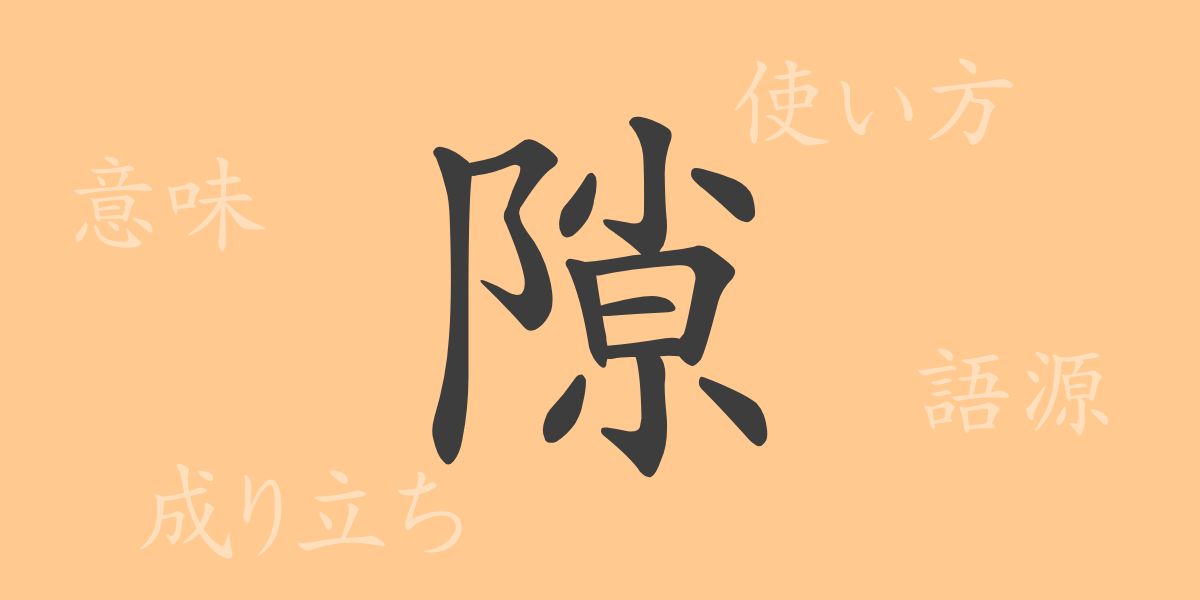The Japanese language contains numerous kanji characters, each with its own unique history and meaning. One such common kanji is “隙(すき, suki),” frequently used in everyday life but with a deep history and cultural significance. This article delves into the origins, meanings, and uses of “隙(すき, suki),” as well as related idioms and expressions, offering a comprehensive exploration of this intriguing character.
Origin of 隙(すき, suki) (Etymology)
The kanji “隙(すき, suki)” originally signified gaps or crevices in ancient China. Its form depicts a small opening in a barrier or wall. Over time, “隙(すき, suki)” took on a more figurative meaning, referring not only to physical gaps but also to intervals of time and psychological vulnerabilities.
Meanings and Uses of 隙(すき, suki)
In modern Japanese, “隙(すき, suki)” is used in various contexts. It can refer to physical gaps, temporal intervals, or even psychological weaknesses. Expressions like “隙がない(すきがない, suki ga nai)” describe something flawless or without gaps, while “隙を見せる(すきをみせる, suki o miseru)” indicates letting one’s guard down.
Readings, Stroke Count, and Radical of 隙(すき, suki)
The kanji “隙(すき, suki)” has several readings and structural components.
- Readings: The on’yomi (Chinese reading) is “ケキ(けき, keki),” and the kun’yomi (Japanese reading) is “すき(suki).”
- Stroke count: “隙(すき, suki)” has 13 strokes.
- Radical: The radical is “阜(こざとへん, kozato-hen)” or “阝(おおざと, oozato),” meaning land or embankment.
Idioms, Expressions, and Proverbs Using 隙(すき, suki)
Various idioms and expressions include “隙(すき, suki),” reflecting its rich meanings.
- 隙間風 (すきまかぜ, sukimakaze): Wind blowing through a gap, metaphorically referring to emotional or relational coldness.
- 隙をつく (すきをつく, suki o tsuku): To exploit someone’s negligence or vulnerability.
- 隙を見る (すきをみる, suki o miru): To look for an opportunity or to observe someone’s weaknesses.
- 隙あらば (すきあらば, suki araba): Watching for a chance, often implying readiness to take action when an opportunity arises.
Conclusion on 隙(すき, suki)
The kanji “隙(すき, suki)” plays a significant role in the Japanese language, encompassing a wide range of meanings from physical gaps to psychological concepts. Its usage spans everyday conversation, business contexts, and literary works, symbolizing the richness of the Japanese language. Through this article, we hope you gain a deeper appreciation for the complexity and significance of “隙(すき, suki).”

























